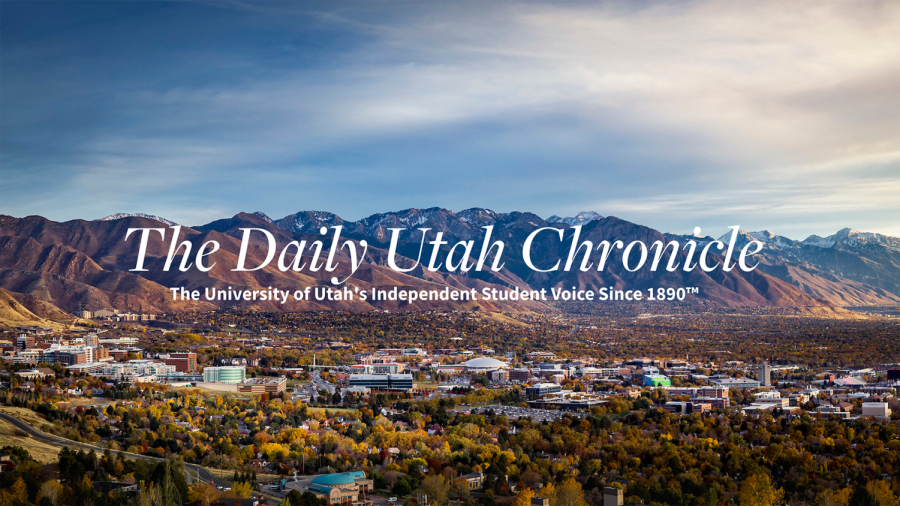Buening: Utah Schools Don’t Need More Censorship
March 10, 2022
Novelist Judy Blume once said, “Having the freedom to read and the freedom to choose is one of the best gifts my parents ever gave me.” I wholeheartedly agree, as someone whose upbringing exposed me to many diverse communities. Reading and living in a variety of places from England to New York to Indiana helped me develop empathy. But as a middle schooler moving to Utah, nothing could prepare me for the starkly different atmosphere. Even at my young age, I couldn’t comprehend how some of my peers knew so little about the world outside of Utah’s bubble.
Over time, I began to see why. Censorship, as an ideology, runs deep within Utah’s culture. Young people were shamed for subscribing to or even learning about beliefs outside of traditional, conservative values. Then, during my eighth-grade sexual education unit, I noticed that trend pervade my education. Our course material consisted of poorly drawn diagrams, aggressive abstinence standards and outdated films. One of these videos depicted sex as an interpretive dance between two shadowy figures. I had the benefit of knowing more realistic information, but some of my classmates remained ignorant on these subjects well into and past high school.
And yet, people continue to treat education as controversial. The “Sensitive Materials in Schools” bill, recently passed by the Utah Legislature, plans to “prohibit certain sensitive instructional materials in public schools.” Behind the jargon’s smokescreen lies severe consequences. While we should teach certain subjects mindfully and carefully, H.B. 374 tackles the wrong issue. Utah’s uber-traditionalism has led to schools shying away from important materials, and that trend of closed-mindedness negatively impacts students. To equip our students with comprehensive education, we need to stop unjustifiable censorship.
Protect, Don’t Burn, Literature
The growing trend among Utah conservatives is to cast suspicion of indoctrination upon teachers. In the context of sensitive materials, these claims have put instructional books under severe scrutiny. Rep. Carol Spackman Moss — a former AP English literature teacher and library worker of 33 years — shed valuable insight on the issue. In an interview with The Daily Utah Chronicle, she spoke about her observations from parents and legislators alike. H.B. 374 proponents have emailed her screenshots of different school materials, writing, “If you think this is okay then you’re a pervert and a pedophile.” Meanwhile, they determine excludable-worthy materials from isolated “extracted lines or illustrations from graphic novels.”
Now, it goes without saying that some materials shouldn’t be introduced prematurely. Kindergarteners probably don’t have the mental capacity to theorize calculus, after all. Likewise, teaching highly sensitive sexual, racial or controversial issues requires proper implementation. But, H.B. 374 aims to restrict some of these subjects altogether. In so doing, as Moss described, they mirror the dystopian plot of “Fahrenheit 451,” a classic novel by Ray Bradbury. In it, books are illegal commodities and subject to burning upon discovery.
But, as Moss has said previously, “The purpose of literature is to illuminate our lives and the human condition. And part of that is showing us the darker side.” We shouldn’t shy away from this darker side because it’s uncomfortable. “The Bluest Eye” by Toni Morrison — a book many Utah parents want banned — explores racism through the perspective of Pecola Breedlove, a black little girl who deals with discrimination and bullying. So while parents stay angry about the book’s profane language and racial commentary, they ignore its messages on the horrors of racism and the oppression of women. It wasn’t meant to be comfortable; it was meant to be real. It should instigate valuable introspection and perhaps provide women of color a character with whom they can identify.
The Sensitive Realities of Utah, Today
Unfortunately, censorship exacerbates the very subjects it tries to hide. Sexual misconduct, for example, becomes more prevalent when people have limited sexual education. In Utah, rape is the only violent crime perpetrated at a rate higher than the national average. To face the startling facts: One in 10 Utah adults have reported experiencing rape or attempted rape at some point in their lifetime. One in three women in Utah will experience sexual violence in their lifetime. 13% of Utahns report being molested before the age of 18. And in the past 12 months, 14.3% of students from Utah high schools reported experiencing sexual violence.
Meanwhile, schools would rather not acknowledge the human body. Instead of teaching consent or providing resources for victims of sexual violence — which apparently includes 14.3% of Utah’s current high school body — H.B. 374 is more concerned with hiding sensitive materials. This makes young people more susceptible to bad choices and environments. Salt Lake Community College student Lauren Hamilton had to learn about sex from her friends and first boyfriend. She said it “isn’t the way you want to learn about sex. It opened the doors for a lot of unhealthy relationship dynamics and unhealthy views on sex.”
How Utah Perpetuates the Problem
Utah hasn’t faltered in its efforts to keep undesirable topics out of schools. In 2021, Utah rejected a bill aimed at teaching consent in sexual education classes. The bill, which Moss sponsored, would’ve mandated instruction on “coercion, sexual violence behavior deterrence and sexual assault mitigation as part of sex education instruction for students in grades seven to 12.” And just this session, the legislature struck down Moss’s newest version of the bill, H.B. 274. Why? Because many Republicans fear the critique of not conforming to the political right; they want to get reelected. H.B. 374’s language even allows Utah to ignore federal statutes that propose standards “inconsistent with community values.” Passing such material effectively institutionalizes confirmation bias.
Instead of further censoring educational material or vilifying human arousal as something that is automatically immoral, as Utah Code Section 76-10-1201 and H.B. 374 do, we need to prioritize the open-mindedness that will actually benefit students.








